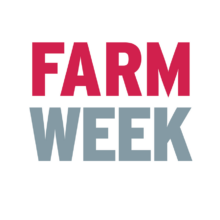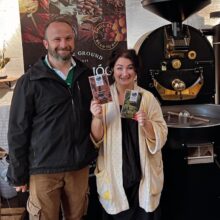Key Role For Agri-Food And Hospitality Sectors In Regenerating Local Economy

Steering a steady course out of the current pandemic, which thankfully is receding, was never going to be an easy task, therefore I was encouraged to see the Economy Minister, Diane Dodds, reconstitute the Economic Advisory Group under the able stewardship of Elvena Graham. Both Minister Dodd’s and Elvena Graham have been great advocates of our home-grown food industry, and it is normal to see them scout for the latest innovations in food at Balmoral Show.
Developing an innovative strategy to regenerate the Northern Ireland economy is a vitally important task. I wish Elvena and the members of the Economic Advisory Group team the very best in their endeavours on our behalf. I am sure the many members of Food NI and Taste of Ulster will join with me in pledging support for the team as it shapes a new economic strategy.
The group, of course, will have also to factor in the consequences of the completion of Brexit and resultant trade arrangements for Northern Ireland’s unique position. It’s still far from clear what a border down the Irish Sea will mean for companies doing business with Great Britain. Greater clarity is certainly needed from the Government…and fast. Britain is, after all, our most important market for food and drink.
I believe that the local agri-food and hospitality sectors are both well-positioned to play a key role in quickly helping to create an imaginative framework especially for long-term economic growth.
Our farmers and food producers have responded to the problems resulting from the lockdown with gritty determination and market-focused innovation. The industry has demonstrated inspirational reliability and versatility in helping to feed our nation. It has gone the extra-mile.
Hospitality has been hardest hit by the lock down, but has still shown creativity and resilience with many in the industry applying imagination and exploring new business models. Our hospitality industry is vital for the future growth of tourism.
Research has also indicated that consumers in Britain are increasingly turning to locally produced food and drink over the lockdown because of its quality, taste and, above, all safety. Consumers, furthermore, appear to be shopping in local farm shops and independent grocery stores to a much greater extent. There is clearly a need to intensify food and drink marketing and promotional activities in Britain to develop opportunities emerging there and also to overcome any challenges posed by the likely post-Brexit imports from the US and further afield.
Our companies have continued to deliver impressive success in Britain, Ireland and further afield during the lockdown. I’ve been immensely encouraged by their great enterprise. Artisan and smaller producers of food and drink including Armagh Beverages, Long Meadow Cider, White’s Oats, Whitewater Brewing, Hinch Distillery, Burren Balsamics, Peppup Sauces, Erne Larder Preserves have all racked up significant sales outside Northern Ireland.
I know that key ministers Diane Dodds (Economy) and Edwin Poots (Agriculture) are both conscious of the outstanding achievements of agri-food, an industry which employed around 100,000 people and generated over £5 billion for the economy before the lockdown. Glanbia’s Paul Vernon, a member of the economic advisory group, is well versed in the existing agri-food contribution to the economy and its future potential.
I hope the group will report back with ambitious plans that build upon the outstanding talent of our innovative, talented and sustainable agri food sector.








